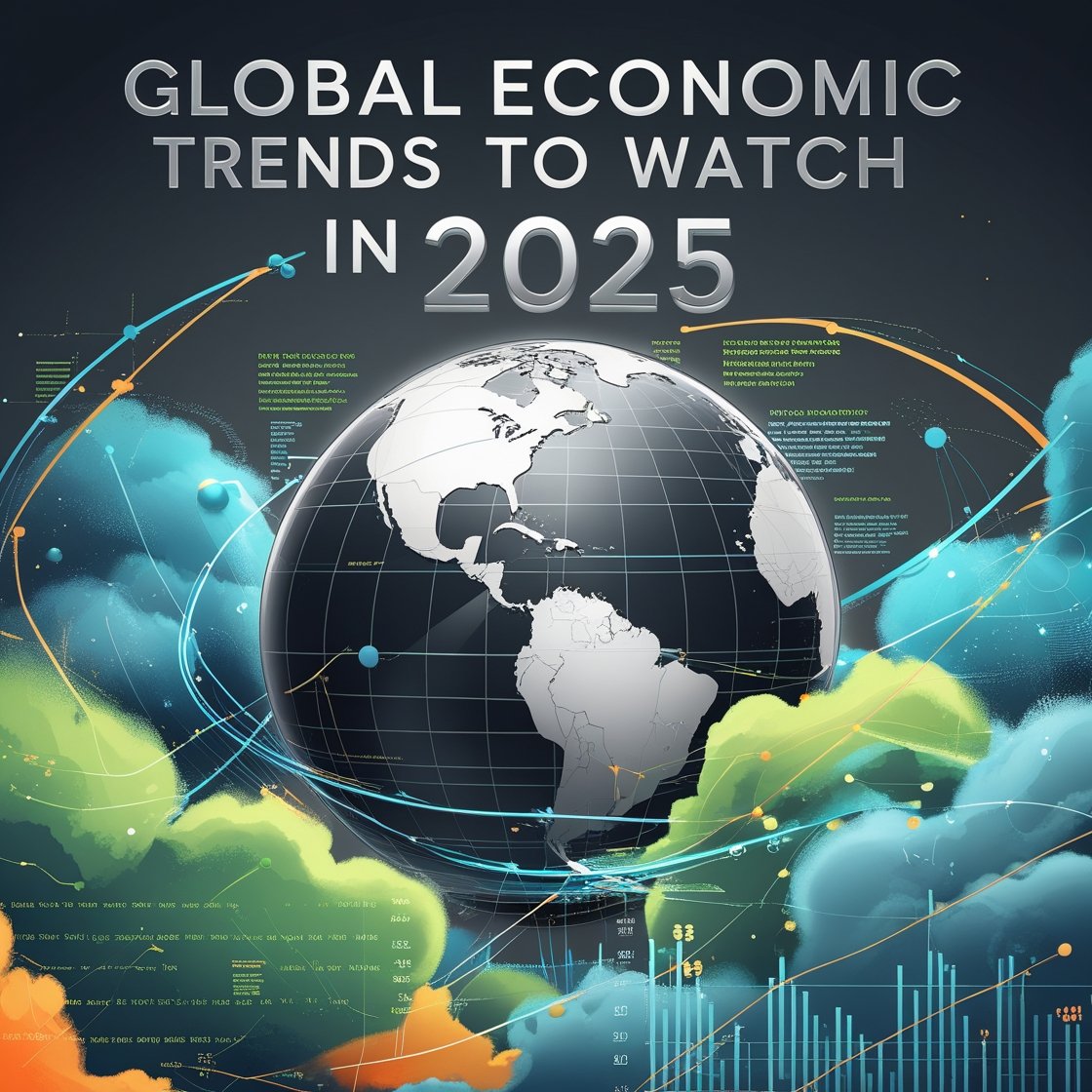The global economy is constantly evolving—sometimes faster than we can keep up with. From shifting trade dynamics to technological breakthroughs, the ripple effects of these changes are felt across industries, communities, and individual lives. Heading into 2025, certain economic trends are poised to shape how businesses operate, governments plan, and we, as individuals, adapt.
This blog will break down the key global economic trends expected in 2025. We’ll explore how these developments could impact businesses and individuals while offering insights to help you stay ahead of the curve. Whether you’re a business leader, investor, or simply curious about the state of the world, here’s what you should keep an eye on.
1. The Digital Dollar Boom
What’s Happening?
Central Bank Digital Currencies (CBDCs) are no longer just a bold idea—they’re becoming a reality. By 2025, major economies like the U.S., China, and parts of Europe are set to expand their implementation of digital currencies run by central banks.
Why It Matters:
CBDCs promise:
- Faster, more secure transactions
- Increased financial inclusion for underserved populations
- Reduced reliance on cash in both developed and developing economies
For businesses, this could mean rethinking payment infrastructures as digital wallets and blockchain technologies gain widespread adoption. However, it may also challenge traditional banking systems, raising questions about privacy and control.
What Can You Do?
If you’re a business owner, explore ways to integrate digital wallets into your payment systems early. Individuals should consider learning more about digital currencies to adapt quickly as more countries adopt this shift.
2. The Great Green Transition
What’s Happening?
The global push for sustainability is accelerating, and by 2025, it’s likely to reshape entire industries. Governments, particularly those in the EU and the U.S., are doubling down on green energy investments and stricter regulations for carbon emissions.
Why It Matters:
- Renewable energy sources like wind and solar will dominate energy grids.
- Green finance markets are expanding as investors prioritize sustainability.
- Businesses are facing increasing pressure for transparency on environmental impact.
What Can You Do?
If you’re running a business, prepare for sustainability audits and consider adopting eco-friendly practices—customers and investors are increasingly favoring green businesses. Individuals can contribute by supporting renewable energy projects or choosing sustainable brands.
3. The Workforce Revolution
What’s Happening?
By 2025, hybrid work models, powered by advancements in AI and automation, will define how we work. But at the same time, labor shortages in key industries (healthcare, manufacturing, tech) will force companies to rethink workforce strategies.
Why It Matters:
- Automation will replace routine tasks, creating demand for tech-savvy professionals.
- Challenges in employee retention may rise as competition for skilled workers intensifies.
- Governments and corporations will need to reskill millions of workers to adapt to new job roles.
What Can You Do?
Invest in continuous learning. Whether it’s learning how to use AI tools or mastering a niche skill in your industry, professionals who adapt to technology will thrive. For businesses, prioritizing training programs and employee wellness can help retain top talent.
4. Inflation Tugs and Interest Rate Twists
What’s Happening?
Inflation, a hot topic in recent years, isn’t going anywhere in 2025. Depending on how central banks like the Federal Reserve manage rates, economies may either race toward recovery or teeter under pressure.
Why It Matters:
- High interest rates could slow global growth, making borrowing costlier for businesses and individuals.
- Persistent inflation could reshape spending habits and investment strategies.
- Emerging markets may struggle with debt repayment while battling inflationary pressures.
What Can You Do?
For businesses, tightening budgets and monitoring operational efficiency will be key. For individuals, paying down high-interest debt and diversifying investments into inflation-resistant assets such as gold or real estate can provide some security.
5. Supply Chain Localization Gains Momentum
What’s Happening?
Global supply chain disruptions—fueled by the pandemic, geopolitical tensions, and shipping backlogs—have prompted businesses to rethink their logistics strategies. By 2025, many companies will shift toward localized supply chains.
Why It Matters:
- Localized supply chains reduce reliance on far-flung nations, improving resiliency.
- Costs may increase in the short term, as manufacturing shifts closer to home.
- Innovations in logistics and AI-driven forecasting will play a key role in supply chain efficiency.
What Can You Do?
Businesses that rely on global suppliers should assess vulnerabilities and explore alternatives closer to home. Additionally, staying updated on logistics technology can help you manage inventory and predict demand more effectively.
6. The Rise of Frontier Markets
What’s Happening?
While global superpowers dominate headlines, frontier markets—smaller, riskier economies outside traditional emerging markets—are gaining traction. Countries across Africa, Southeast Asia, and Latin America are becoming hubs for growth and investment.
Why It Matters:
- With young populations and untapped potential, these regions are ideal for startups and investors seeking high growth.
- Stronger connectivity through digital technologies is making these markets more accessible.
- Risks such as political instability and poor infrastructure still remain, demanding informed strategies.
What Can You Do?
Investors can explore high-growth sectors like technology, agriculture, and renewable energy in frontier markets. Businesses can consider expansion opportunities or partnerships while conducting thorough risk assessments.
Prepare for 2025 and Beyond
The global economy in 2025 is shaping up to be a landscape of shifting trends and growing opportunities. While challenges are inevitable, understanding these key trends can help you position yourself—or your business—effectively for what lies ahead.
Whether it’s the unstoppable wave of digital currencies, the workforce revolution, or the promise of frontier markets, staying informed and proactive is crucial.
Take steps today to be ready for tomorrow. Need help navigating these changes or defining your financial strategy? Join our mailing list for expert insights straight to your inbox—or connect with a professional advisor to make 2025 your strongest year yet.

